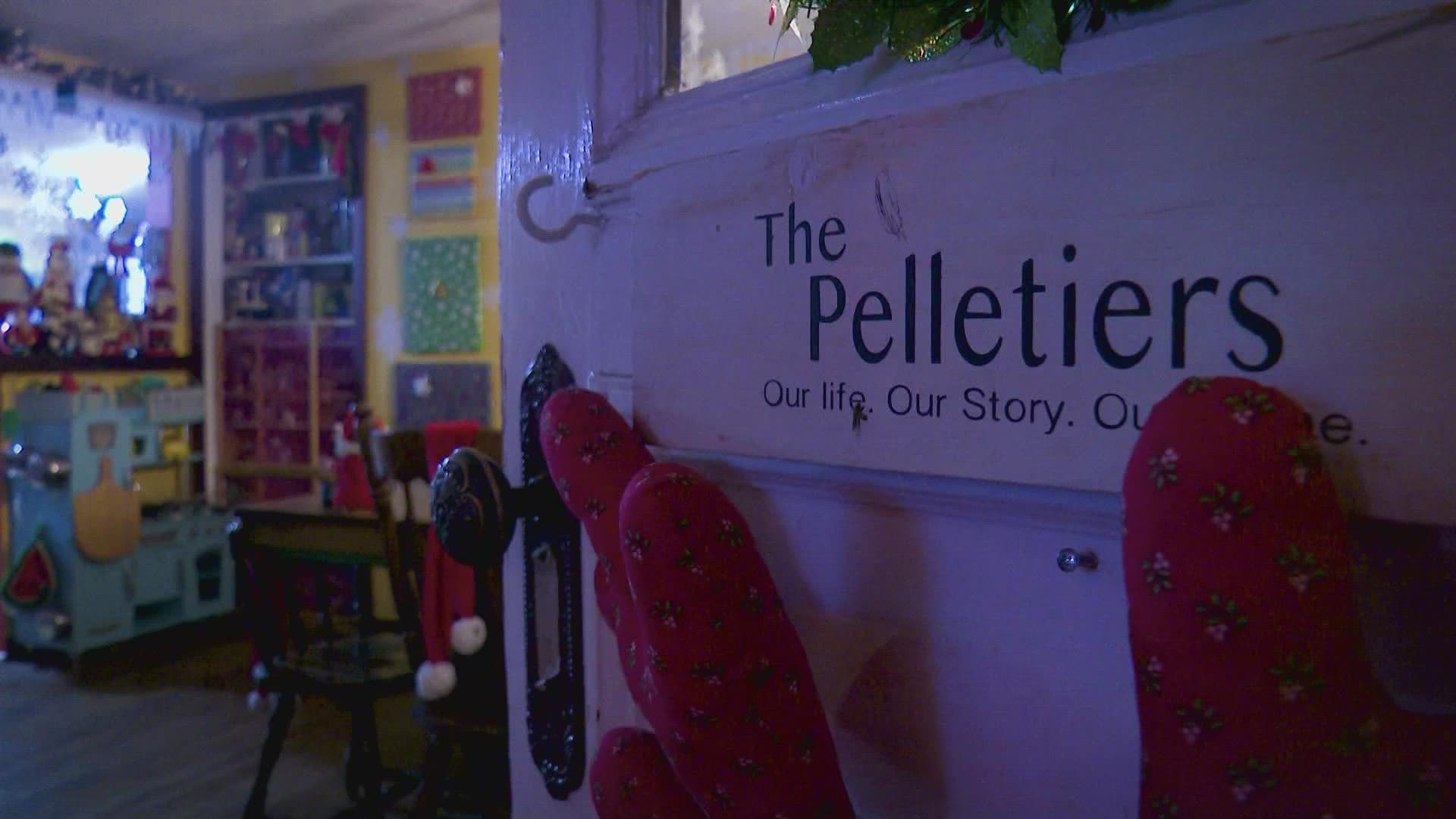WESTBROOK, Maine — Maine's Department of Health and Human Services has recently reported that the number of available homes to take in kids in state custody is increasing, but host families are asking for more support, and not just by way of funding.
Resource families, typically known as foster families, take in children whose parents DHHS has deemed cannot safely care for them.
DHHS spokesperson Jackie Farwell said the number of available resource homes jumped from 1,332 in 2019 to 1,770 in 2022. She said the department pays extra attention to placements that can prove more challenging, like teenagers or large sibling groups, which case workers try to keep together whenever possible.
As of November 2022, 2,467 children were in state custody. More than 40 percent of them were placed with relatives. DHHS reports just 1.9 percent of kids in state custody are in congregate care, such as group homes or residential treatment centers: the lowest rate in the nation.
"Resource parents are essential to keeping Maine children safe and healthy," Dr. Todd Landry, director of Maine's Office of Child and Family Services, wrote in a statement. "We extend our gratitude to Maine's resource families for partnering with our staff to care for the day-to-day physical, mental, and emotional needs of Maine children and welcome new families in opening their homes to vulnerable Maine children."
Hannah Pelletier and her husband, Jeremy, opened their home to kids in state custody.
"I like to think that they feel safe at my house, whether they live with us or not. I just want to be that place," Pelletier said.
In her 13 years as a foster parent, she has taken in hundreds of kids from all over Maine. Some never left. Her biological daughter, 11-year-old Franny, celebrates the holidays under the same roof as 9-year-old Addyson, and 7-year-old Phoenix—both of whom Pelletier adopted.
"Having a grown-up, having somebody who cares about you at a young age, no matter what happens in the future, it's impactful," she said. "They can't identify, 'Oh I spent a year here safe and loved.' It's not something that they'll ever know, but it's something they'll always feel."
DHHS said its goal is to reunite kids with their biological families, but that is not always possible.
COMPLEX SUPPORT NEEDED
Adoptive and Foster Families of Maine tries to help resource parents, especially around the holidays, when the routine these kids rely on changes.
"Kids are going through a lot more and are dealing with so many different things through the holidays, around grief and loss and being reminded of those pieces," Travis Bryant, executive director of AFFM, said. "For some, we want to set up that picture-perfect Christmas of all the family being together, but the reality is: What's better? Our needs? Or the child's needs?"
AFFM helped provide holiday gifts for roughly 1,200 kids all over Maine in 2022. Members asked friends and coworkers to sponsor a family by donating money or gifts for families who now have an extra mouth to feed or wardrobe to buy.
"It feels good, and we want to do those things, but they need our help year-round," Melanie Crane, a board member with AFFM, said.
Maine DHHS reimburses families for fostering children. That money totals about $25 to $75 per day per child depending on the severity of the child's needs.
"For the most part, their basic needs are met. I think a lot of the families still struggle," Crane said. "Being able to have normal childlike experiences like going to summer camp or having a new wardrobe, or having those experiences that we often take for granted. Those aren't available to them."
Gifts and donations also bring some informal therapy, which is critical for people navigating this process. It can be physically and mentally stressful, but due to the confidentiality around kids in state custody, a resource family may not be able to share certain details with their normal supports, such as family or friends.
"There's a legal process to court and to all that stuff that we don't have any control over. That's hard," Pelletier said.
"When we give them that financial piece, they're talking to a peer," Bryant said. "They're getting that support through someone who understands what they're going through."
"It does feel like a roller coaster and just being able to tell somebody else, it just makes me feel better," Pelletier said.
AFFM offers options to people looking to support resource families.
Whether people buy presents for the organization's holiday gift-giving drive or sponsor a kid to send to summer camp, it gives the resource family a respite and gives the kids a chance to socialize and be included with others.
One camp is a Camp to Belong, which brings together siblings who have been separated by foster care, adoption, or other out-of-home care.
The organization also has an emergency fund where people can contribute.

